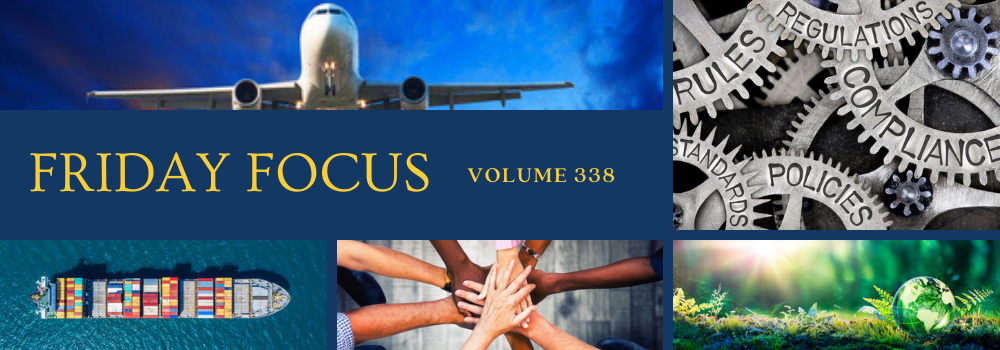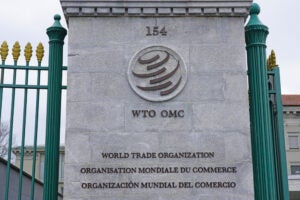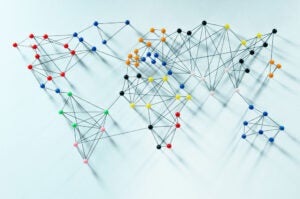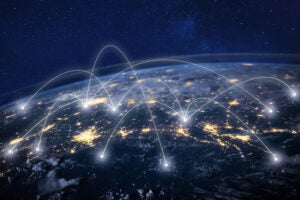Is there life for the World Trade Organization (WTO) after neoliberalism? The WTO is often assumed to exist to provide “neoliberal standards and rules for interaction in the global economy.” What role might the WTO have in a post-neoliberal world, where maximizing the free movement of goods, services, and capital is no longer presumed to be the desired path to development and growth?
Today, the going wisdom is that the WTO is no longer fit for purpose, and even its supporters have suggested that major institutional reform is essential for its survival. While the WTO was once seen by many as the standard bearer for global economic governance, in recent years, the WTO has been hit by escalating critique from virtually all corners, and has been consigned to irrelevance by many. If, as a leading Financial Times business journalist has declared, “[t]he bottom line is that globalization as we’ve known it for the last half century is over” and “we need much more focus on the local,” the WTO appears fated to die, as some of its critics have already predicted, albeit slowly and painfully.
On this logic, the WTO’s Twelfth Ministerial Conference (MC12) in June 2022 in Geneva should have taken on the character of a funeral or wake. Instead, at the eleventh hour, after days of marathon negotiating sessions, the MC12 resulted in several significant multilateral agreements on issues such as WTO reform, e-commerce, fisheries subsidies, agriculture, and food security (the “Geneva package”). Still, some of these accords were merely undertakings to keep negotiating, or require additional talks to become final. So depending on your perspective, the MC12 either resurrected the WTO from the dead to live again, or merely kept a mortally wounded WTO on “life support.”
In this Article, we aim to contribute, as legal scholars, to the debate about the WTO’s future after the MC12, in a post-neoliberal world—a time that some have even described as “deglobalization.” Our objective is not to sketch a new, comprehensive model of global justice or global economic governance to suit the times. Instead, by focusing on the underlying legal architecture of the WTO, we want to suggest that the WTO’s legal order is already well-suited to pivot to a post-neoliberal world. It is fundamentally compatible with an era where no single governance paradigm has emerged to replace neoliberalism, and where states are actively experimenting with a return to strong domestic economic governance, including industrial policies, as well as what former Canadian international trade and foreign affairs minister Chrystia Freeland described as “values-based” domestic and regional trade policies, which take into account fairness to workers as well as principles of human rights and democracy.
|
After years of upheaval in international economic relations, a new approach to trade policy is taking shape: multipurpose trade policy. Inspired by competing narratives about globalization that bring different values to the fore, this approach no longer just tries to achieve an efficient international division of labour through trade liberalization. Rather, it tasks trade policy with achieving other substantive policy objectives as well, which include bolstering labour rights, addressing inequality, building resilient supply chains, safeguarding national security, and mitigating the climate crisis.
Trade officials have long been attentive to the effects of trade on other policy objectives, often portraying them as either positive or negative externalities of trade liberalization. On the positive side, increased international interdependence was expected to promote peaceful international relations. Some expected that rising incomes would lead to better working conditions and more support for environmental protection. Others argued that trade produced negative externalities, such as the overexploitation of resources and environmental degradation, and advocated for the expansion of exceptions to trade obligations to resolve conflicts between trade and other objectives. Since the early 1990s, trade agreements have also often featured provisions regarding labour rights and the environment to ensure that greater international competition does not take place on “unfair” terms.
The key distinguishing feature of the more recent shift to multipurpose trade policy is that other policy objectives no longer come into the picture as externalities of trade liberalization or as safeguards against unfair competition. Instead, those other policy objectives have taken a place alongside, and in some cases the place of, trade liberalization as the immediate objectives that trade policy is supposed to pursue.
The purpose of this article is to sketch the evidence for this paradigm shift in trade policy, outline the key challenges that it presents, and explore its implications for international trade cooperation.
The Crisis of Globalization
It is now commonplace to observe that globalization is in crisis. One piece of evidence of this crisis is that the establishment view of globalization as an inevitable force for good is increasingly being challenged by other narratives that bring a range of competing values to the fore. From the economic establishment’s perspective, free trade and an efficient international division of labour have the potential to make everyone better off—if governments implement the right policies domestically to help workers adjust to the dislocations that competition in a truly global economy may cause.
|
|
|
Excerpt from piece by Susan Ariel Aaronson, Research Professor of International Affairs, and Director of the Digital Trade and Data Governance Hub, Elliott School of International Affairs, George Washington University.
When we go online, download an app, buy a sweatshirt, or peruse TikTok, we are taking a leap of faith—acting with agency in an environment without control or certainty. We trust the firms that provide these services will not only provide us with goods and services, but that they will also protect our personal data and do their best to prevent us—their stakeholders—from harm. As political theorist Francis Fukuyama has written: ‘Trust is the expectation… of regular, honest, and cooperative behavior, based on commonly shared norms, on the part of other members of that community’. According to the OECD, ‘trust is also the foundation upon which the legitimacy of public institutions is built and is crucial for maintaining social cohesion’. Trust is essential to democratic capitalist functioning, and in particular to trade, because buyers and sellers don’t know each other. But the same is true for users and providers online.
Yet no one knows how to build or sustain trust in the face of rapid data-driven change. Online ‘trust must be negotiated with others whom users do not see, with faraway enterprises, under circumstances that are not wholly familiar, in a world exploding with information of uncertain provenance’.
Since the onset of the global pandemic, individuals, companies, and governments have become increasingly dependent upon the internet and data-driven services to work, learn, and socialize. These new services helped sustain the global economy and allowed many to connect, work, study, and prosper online through lockdowns. Yet because many of these services are built on the collection, analysis, and monetization of personal data, they also threaten our autonomy, individual rights, and systems of governance…
Policy-makers are eager to build trust in how they govern data. But the process of negotiating trade agreements (which is secretive) could be problematic to engendering trust. Some believe that trade negotiations allow policymakers to deliver on behalf of special interests such as large digital platforms, rather than the broad public Others argue that because the process is secretive, policy-makers can avoid catering to national special interests. Hence, how policy-makers respond to what their citizens say they need or are concerned about is as important as what (the specific rules) when designing rules and institutions of governance.
This paper focuses on both what policy-makers include in trade agreements and how they include these provisions. I focus on three concerns impeding trust online: internet shutdowns and censorship, disinformation, and ransomware (a form of malware). I will show that these problems are increasingly visible, and trade distorting. Moreover, all three may undermine trust, which could lead consumers and firms to be more cautious in their online operations. Over time, that could reduce market growth for users and providers of data-driven services.
|
|
|
|
There are only so many times you can shake the foundation of a structure before it changes what is built above it. With supply chains almost constantly feeling the effects of repeated shocks in the last half decade, recovering and strengthening have become front of house for supply chain professionals.
We are now in a rebuild that is not just looking to construct the same edifice all over again, but to improve and shift it to firmer ground. In practice, that means reassessing and contracting closer to home and spreading sourcing functions in more locations than before.
Companies around the world are now moving towards making the leap to source components and materials in the near vicinity of their final markets in the hope of having shorter, more reliable, less risky, and increasingly sustainable supply chains.
There will be winners and losers from this change, but it is clear from the recent past that continuation of long-distance, low-cost labour sourcing comes with its own price tag, which is driving change.
The emphasis is no longer low cost at all costs, but a more nuanced search for reliability, proximity and the right skills mix. This will drive the next phase of global manufacturing and logistics in an automated age.
These trends are shown clearly in our research, which surveyed logistics, supply chain and transport professionals to understand how sourcing and production are changing to fit more unstable times, as well as a changing global labour force and consumer base.
The results were conclusive: We are now well into a new phase of supply chain strategy, one where sourcing is being prioritised and brought into closer orbit of the contracting company and intended market.
|
|
|





